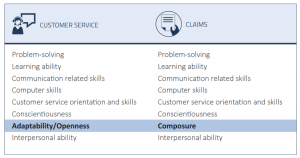Company updates How Google Fights Piracy document, announces new anti-piracy measures.

Against what seems like an almost constant string of accusations that it’s not doing enough to prevent online piracy, Google today touted recent progress on that front today with an updated version of its How Google Fights Piracy document and new anti-piracy efforts in its search results.
The 26-page document, first published in 2013, outlines Google’s five anti-piracy principles:
- Create more and better legitimate alternatives (to piracy).
- Follow the money. “The most effective way to combat (online pirates) is to cut off their money supply,” the document says, while mentioning that Google bans “rogue sites from our advertising and payment services.”
- Be efficient, effective and scalable. Google says it “processes copyright removal requests for search results at the rate of millions per week with an average turnaround time of less than 6 hours.”
- Guard against abuse.
- Provide transparency.
Google says it received more than 224 million DMCA requests for its search results in 2013, and removed 222 million of the requested URLs.
New Ad Formats, “Pirate” Algorithm Update
Google also revealed today that it’s planning to roll out an update to its “Pirate” search algorithm next week. It’ll be the first such update since the algorithm rolled out in August 2012.
“We’ve now refined the signal in ways we expect to visibly affect the rankings of some of the most notorious sites,” Google’s blog post says. For more on this, see Danny Sullivan’s article on our sister site, Search Engine Land:
After More Than Two Years, Google Finally Releasing New “Pirate Update” To Fight Piracy
Another anti-piracy effort announced today is a new ad format that promotes legitimate sources of online content like movies and music. The ads will appear on searches that include words like “download,” “free” or “watch” and point searchers to websites and services like Spotify, Amazon, Google Play and others, where content can be bought or consumed legally.
For more on this, see Ginny Marvin’s story on Search Engine Land:
Google Testing New Ad Formats For Movies, Music In Anti-Piracy Effort
Lastly, Google says it’s removing more words from its Autocomplete feature that offers predictions about what a user is searching for: “We’ve begun demoting autocomplete predictions that return results with many DMCA demoted sites.”
Marketing Land – Internet Marketing News, Strategies & Tips
(398)
Report Post





